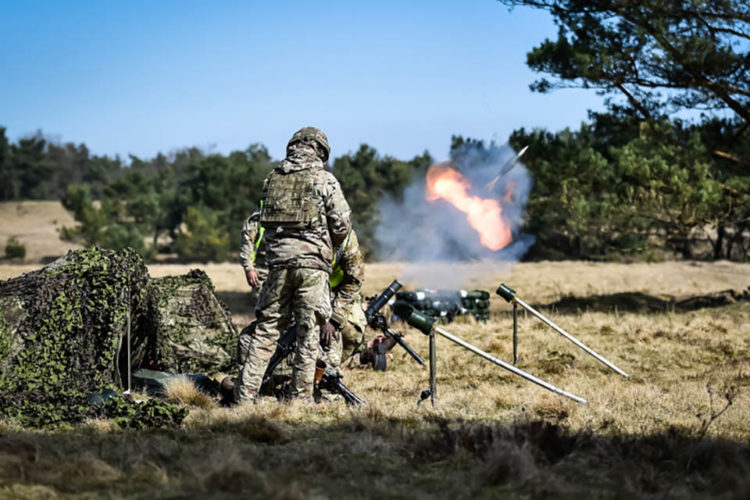After 75 years in the Central European country, the British Army has handed back control of the last remaining British base, Catterick Barracks Bielefeld, to Germany.
This follows a 10-year gradual drawdown in British personnel in Germany. This policy, named “Operation Owl,” was set in motion by then-Prime Minister David Cameron as part of a cost-saving effort. At the time of its announcement, roughly 20,000 British soldiers were stationed in the country.
In 2010, it was estimated that the presence of the British personnel contributed roughly €1.3 billion per year to the German economy. They were distributed across 12 bases in North Rhine-Westphalia and Lower Saxony.
Now, only 185 British Army personnel along with an additional 60 civilians working for the Ministry of Defence are expected to remain in the country. They will mainly focus on training. The remaining personnel will be stationed at the 117-squared kilometer Sennelager Training Area, which is owned by the German government. The facility provides access to live-fire training exercises. All combat units have now been withdrawn.
Catterick was Britain’s only base in Germany since 2013.
In anticipation of their repatriation, hundreds of new housing units have been constructed in the three garrison towns of Bulford, Tidworth, and Larkhill. The majority of the soldiers have been sent to Salisbury Plain in Wiltshire, in Southwest England.
Speaking about the closure, commanding officer, at the Germany Enabling Office, Lieutenant Colonel Tony Maw said: “Today I think, not only for me but for the British forces as a whole, means the end of an era.”
Although it has not been decided yet, it has been reported that German police are interested in converting Catterick into a training academy.
While the drawdown has been a consistent policy over time it has not been without its critics. In January 2018, General Sir Nick Carter, who was serving as the head of the British Army, publicly stated that he was “actively examining” Operation Owl and possibly reversing it. One of the motivations was to bolster Britain’s continental presence in case of an unlikely Russian attack on NATO.
Since the 2010 general election, which resulted in the Conservative Party retaking power for the first time in 13 years, the United Kingdom has largely gone through austerity-based policies. While this has been scaled back in recent years, it did result in a reduction in military expenditure. However, the most recent budget has the country set for a budget increase despite facing an overall budget shortfall.
Already have an account? Sign In
Two ways to continue to read this article.
Subscribe
$1.99
every 4 weeks
- Unlimited access to all articles
- Support independent journalism
- Ad-free reading experience
Subscribe Now
Recurring Monthly. Cancel Anytime.











COMMENTS